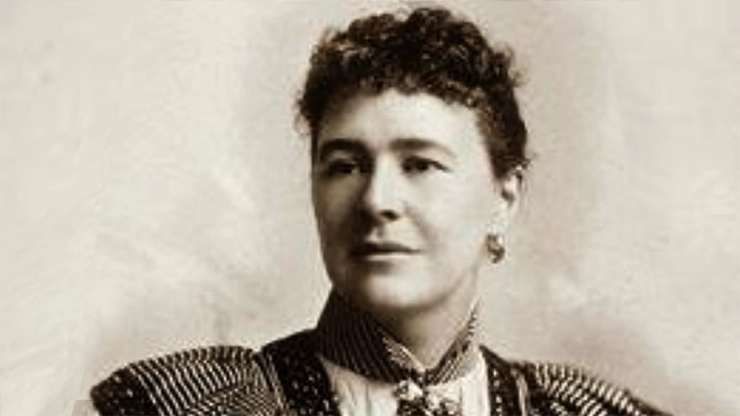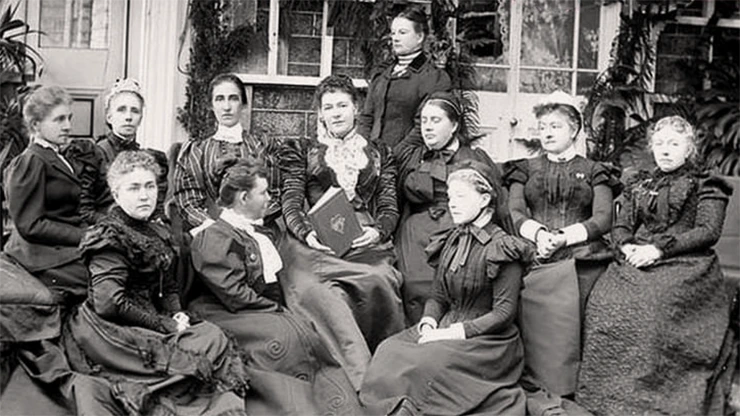- Mahsa S. Y.
- information
- 235 views
- 0 comments
Lady Ishbel Aberdeen, born in 1857 in Scotland, was a prominent British-Canadian figure known for her dedication to social welfare and women's rights. She was the wife of John Campbell Gordon, the 7th Earl of Aberdeen, who served as the Governor General of Canada. Lady Aberdeen significantly improved public health, education, and social services. This article explores her life, contributions, and lasting impact.
Lady Aberdeen was not only focused on Canada and Britain; she was also interested in charity work at an international level. For example, she supported global efforts to improve women's lives in other countries. She was concerned about fighting widespread diseases around the world.
Lady Aberdeen's Early Life
Lady Ishbel Aberdeen was born into a noble family. She received a good education and was interested in helping others from an early age. 1877, she married John Campbell Gordon, the 7th Earl of Aberdeen. Together, they shared a passion for social reform and philanthropy. Despite their high status, Lady Aberdeen and her husband were known for their simple lifestyle. They valued staying connected to ordinary people. Even during their travels across Canada, they made efforts to understand people's problems closely and work to solve them. And that's why she is one of the boldest figures in Canada's history.

Lady Aberdeen's Works in Canada
From 1893 to 1898, Lady Aberdeen lived in Canada while her husband served as the Governor General. During this time, she immersed herself in the needs of Canadian society. Her most significant works in Canada were:
Cyrus Crafts; Luxury & Unique Products
- Focusing on Women's Rights: Lady Aberdeen believed strongly in women's empowerment. In 1893, she helped create the National Council of Women of Canada, which aimed to improve the lives of women and their families. This organization supported education, health, and social reforms for women.
- Elevating Women's Education: In addition to founding the National Council of Women, Lady Aberdeen aimed to improve women's access to education. She believed education could transform women's lives and help them become more active in their communities. She supported workshops and courses to help women learn new skills.
- Promoting Public Health: One of her major concerns was improving public health. Lady Aberdeen was crucial in raising awareness about tuberculosis, a common and deadly disease at the time. She helped establish the Victorian Order of Nurses (VON), which provided care for the sick, especially in rural areas.
- Supporting Indigenous Peoples and Awareness of their Issues: During her time in Canada, Lady Aberdeen paid attention to the conditions and reviving the culture of Indigenous peoples. She was particularly concerned about their challenging living conditions and health issues, and she worked to raise awareness about their struggles among Canadians. She supported efforts to improve their health and well-being.
- Involvement in the Temperance Movement: Lady Aberdeen strongly supported the temperance movement, which sought to reduce alcohol consumption. She believed that excessive alcohol use hurt families, especially women and children. She worked to promote healthier family lives through reduced alcohol use.
After returning from Canada, Lady Aberdeen continued her social work in Britain. She remained active in various social and charity movements in Scotland, aiming to improve health and education in the region. She also became the president of the International Council of Women, collaborating with women's organizations worldwide.

What Did Lady Aberdeen Found?
Lady Aberdeen founded the National Council of Women of Canada. Her support for the Victorian Order of Nurses has left a lasting legacy.
- Founding the National Council of Women: Lady Aberdeen's creation of the National Council of Women of Canada provided a platform for women to speak about their needs and participate in social and political life. This council is still active today.
- Victorian Order of Nurses: The VON, which Lady Aberdeen helped establish in 1897, aimed to provide better healthcare services, particularly for mothers and children in remote areas. It made a significant difference in public health care during that time.
- Legacy of Compassion: Her efforts left a lasting legacy in Canada and the UK. She showed that women could play a vital role in society and helped pave the way for future women's movements.
Challenges that Lady Aberdeen Faced
Growing such an influential figure is not challenge-free. Lady Aberdeen faced many challenges throughout her life. She sometimes faced criticism due to cultural differences between her British background and Canadian society. However, she remained committed to her mission of improving lives. While she succeeded, some of her initiatives faced resistance from conservative societal elements, who were not ready to change women's roles or social reforms.
A Review of Lady Aberdeen's Life and Works
Lady Ishbel Aberdeen was more than just the wife of a Governor General—she was a leader, a reformer, and a compassionate advocate for the well-being of others. Her contributions to women's rights, public health, and social reform have left a lasting mark on Canadian society. Her story is one of dedication to helping others and overcoming challenges to create a better world. She passed away on April 18, 1939, in Scotland.
Today, her legacy lives on through organizations like the National Council of Women and the Victorian Order of Nurses. Lady Aberdeen's story reminds us of the power of compassion and determination to positively impact society.




















Comments (0)